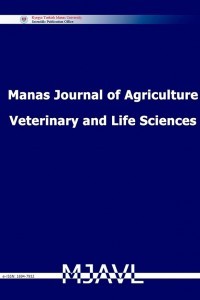
Manas Journal of Agriculture Veterinary and Life Sciences
Yazarlar: ["Zhanylbubu MAMATOVA", "Ali AYDIN"]
Konular:-
DOI:10.53518/mjavl.1116093
Anahtar Kelimeler:Kurut,İpek yolu,Fiziko-kimyasal özellikler,Mikrobiyolojik özellikler,Halk sağlığı,Kurut,Silk road,Physico-chemical properties,Microbiological properties,Public health
Özet: Kurut is a traditional fermented dairy product which is generally obtained by drying of yogurt or buttermilk after filtration and can be stored for several years without damage. It is loved and consumed in Anatolia and Silk Road geographic regions. Generally, it is known as “kurut” in China, Russia and Kyrgyzstan,”kurt” in Kazakhstan, “kashk” in Iran,”kishk” in Lebanon,”aaruul” in Mongolia and as “kesh” in Turkey. Kurut contains such substances as animal protein, calcium, potassium and phosphorus, which have high nutritional value and are essential for healthy human life and development, and lactic acid bacteria that are important for human health, such as Lactobacillus delbrueckii bulgaricus and Streptococcus thermophilus. Although no standard method has yet been reported in production technology, we have information on the ratio; protein, fat, dry matter and salt is 7-55%, 8-45%, 80%, 9%-13.%, respectively. It is believed that kurut may contain pathogenic and opportunistic bacteria such as Staphylococcus aureus and coliform bacteria, if hygienic conditions during production, storage and marketing are not met properly, and this situation may pose a risk to public health.